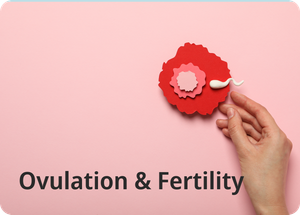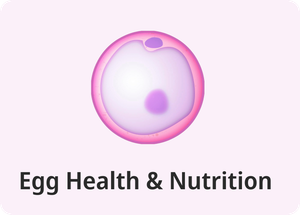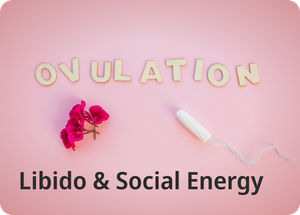Premenstrual syndrome (PMS) is a collection of physical, emotional, and behavioral symptoms that occur during the luteal phase of the menstrual cycle, typically one to two weeks before menstruation. While physical complaints such as bloating or breast tenderness are well-known, the emotional and psychological changes are often more disruptive. Many women report mood swings, irritability, anxiety, or even low mood that interferes with their daily lives.
PMS is defined as the recurrence of physical and emotional symptoms during the luteal phase that resolve once menstruation begins. The severity can vary: some women experience only mild irritability, while others face intense mood disturbances that significantly affect relationships, work, and overall well-being. When symptoms are extreme, the condition may be diagnosed as premenstrual dysphoric disorder (PMDD), a severe form of PMS that primarily affects mood.
The menstrual cycle is governed by two key hormones: estrogen and progesterone. After ovulation, progesterone levels rise, while estrogen gradually decreases. These changes can influence neurotransmitters in the brain, especially serotonin and gamma-aminobutyric acid (GABA), which regulate mood, calmness, and emotional stability. A decline in serotonin activity is closely linked to premenstrual irritability, sadness, and food cravings.
Not all women experience PMS to the same degree, suggesting that individual sensitivity to hormonal shifts plays a role. Some women may have a more reactive central nervous system or heightened stress response, making them more prone to emotional fluctuations.
Chronic stress, lack of sleep, poor diet, and minimal physical activity can amplify PMS symptoms. Stress raises cortisol levels, which can interfere with both hormonal balance and emotional regulation.
Women with pre-existing depression, anxiety, or mood disorders may notice worsening of their symptoms during the premenstrual phase. PMS can act as a trigger that magnifies underlying vulnerabilities.
Rapid shifts in mood such as feeling cheerful one moment and irritable the next—are one of the hallmark features of PMS. These changes are often unpredictable and can strain relationships.
Heightened sensitivity to small annoyances is common. Women may find themselves snapping at loved ones or feeling impatient at work. This is often linked to low serotonin and higher stress reactivity.
Some women feel more anxious, tense, or restless during the premenstrual phase. This may include difficulty concentrating, overthinking, or feeling easily overwhelmed.
Mild depressive symptoms are often reported, ranging from feeling down and hopeless to withdrawing from social interactions. In PMDD, these feelings can be severe and may include suicidal thoughts, requiring urgent medical attention.
Low energy and difficulty initiating tasks often accompany emotional changes. This can make daily responsibilities feel more burdensome than usual.
PMS can cause insomnia or disrupted sleep, which in turn worsens mood swings and irritability. Poor sleep reduces emotional resilience, making it harder to cope with stressors.
Food cravings, particularly for carbohydrates and sweets, are common. These may provide temporary mood relief by boosting serotonin but often lead to energy crashes and further irritability.
Emotional volatility can create misunderstandings with partners, friends, or colleagues. Irritability may cause unnecessary conflicts, while low mood can lead to withdrawal.
Difficulty concentrating, fatigue, and mood swings can affect focus and workplace efficiency. Some women may also miss workdays due to severe PMS symptoms.
Repeated experiences of emotional instability may make women feel guilty, weak, or “out of control,” leading to lowered self-confidence.
Severe PMS can significantly reduce overall well-being, affecting not just mood but also physical health and social life.
Eating a nutrient-rich diet supports hormonal balance and brain health. Complex carbohydrates, lean proteins, and omega-3 fatty acids help stabilize mood. Reducing refined sugar, excessive caffeine, and processed foods can prevent sudden energy fluctuations.
Regular exercise increases endorphins, natural mood boosters, and improves serotonin function. Activities such as walking, swimming, or yoga are particularly helpful during the premenstrual phase.
Relaxation techniques such as mindfulness meditation, breathing exercises, or journaling reduce cortisol levels and promote calmness. Even dedicating 10–15 minutes a day to relaxation can significantly ease emotional distress.
Prioritizing 7–8 hours of restful sleep improves emotional resilience. Establishing a consistent bedtime routine, reducing screen exposure before sleep, and practicing relaxation techniques can improve sleep quality.
Identifying negative thought patterns and replacing them with healthier coping mechanisms can reduce emotional reactivity. Keeping a mood diary helps track symptoms and prepare for vulnerable phases of the cycle.
Open communication with friends, family, or partners reduces feelings of isolation. Educating close ones about PMS can foster empathy and understanding during difficult days.
For women with severe PMS or PMDD, medical interventions may be necessary. These may include:
While mild PMS is manageable through lifestyle changes, medical attention is necessary if:
A gynecologist, psychiatrist, or psychologist can provide tailored treatment, ranging from counseling to medication, based on severity.
While PMS cannot always be eliminated, it can be managed effectively. Self-awareness, consistent routines, and healthy coping mechanisms reduce its impact over time. Tracking symptoms helps in predicting vulnerable days and planning accordingly. With proper support, women can regain control over their emotions and maintain a fulfilling life despite PMS.
PMS and its emotional changes are a natural outcome of hormonal fluctuations, but they need not dominate a woman’s life. By understanding the biological basis of these mood shifts and adopting a holistic approach combining nutrition, exercise, stress management, and medical care where needed so, women can navigate the premenstrual phase with greater ease and self-compassion. Recognizing that these emotional changes are real, valid, and manageable is the first step toward empowerment and healthier living.
About PeriodSakhi
PeriodSakhi is your trusted companion for understanding your menstrual health. With easy-to-use tools, it helps you track your periods, ovulation, fertility, moods, and symptoms, while providing insights into your overall reproductive and hormonal health. PeriodSakhi also serves as a supportive online community where women can share experiences, find reliable information, and access expert-backed guidance on menstrual health, PCOS, pregnancy, lifestyle, and more.
Disclaimer
The views, thoughts, and opinions expressed in this article/blog are solely those of the author and do not necessarily reflect the views of PeriodSakhi. Any omissions, errors, or inaccuracies are the responsibility of the author. PeriodSakhi assumes no liability or responsibility for any content presented. Always consult a qualified medical professional for specific advice related to menstrual health, fertility, pregnancy, or related conditions.
Start the conversation
No comments yet. Start the conversation by leaving the first comment!




